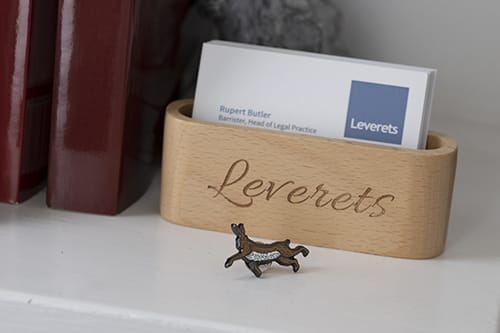Intellectual Property Disputes
A survey at the beginning of this year indicated that intellectual property (IP) dispute exposure grew in 2024, with an expectation that businesses could be even more exposed in 2025 as a result of increased use of AI technology.
Furthermore, more than half of exposed businesses could likely engage in IP enforcement litigation over the next 12 months.
Patents are perhaps the biggest causes for concern. Nearly half of respondents witnessing growing IP exposure report greater vulnerability to patent disputes. Protecting proprietary information, maintaining brand integrity, retaining competitive advantage, IP monetisation, and deterring IP infringement are all listed as factors that could also push businesses towards litigation.
Key Litigation Trends
A key IP litigation trends that’s emerged in recent years is challenges to ‘bad faith’ trademark registrations. However, the judgment in Sky v SkyKick, widely recognised as one of the most important UK IP cases for many years, has served to clear things up.
Let’s take a closer look…
Background to the SkyKick Litigation
If you’ve set up a business, you’ll no doubt appreciate the frustrating experience of finding all potential domain names have already been secured by organisations that have absolutely no intention of using them – other than to sell them on at a higher price.
You do have some recourse. A registration of a trademark can be invalidated in whole or in part on the basis that it was made in bad faith because the applicant did not, at the time of the application, have a genuine intention to use the mark in relation to some or all of the goods or services for which protection was sought. However, until now the fly in the ointment has always been a lack of legislative definition of bad faith, making it tougher to contest and prove.
In the case of SkyKick v Sky, Sky brought infringement and passing off claims against SkyKick for using the mark ‘SkyKick’ in relation to its cloud migration, backup and management services. In doing so, Sky relied on its prior EU and UK trademarks across a broad range of goods and services. SkyKick then counterclaimed, attacking the validity of Sky’s trademarks on the basis that they had been applied for in bad faith without genuine intention to use them in respect of all the goods and services covered by the registrations. This is often referred to as protectionism, which can serve to damage the sanctity of competition and free markets.
SkyKick v Sky Rulings
In the original High Court trial in 2021, the judged found that SkyKick had infringed Sky’s trademark, but also that some of Sky’s trademark registrations should be partially invalidated on the grounds of bad faith because:
- it did not intend to use the trademarks at the application dates in relation to some of the goods and services covered by the specifications, and there was no foreseeable prospect that they would ever do so
- in applying for the marks, there was a deliberate strategy of seeking very broad protection, without commercial justification, as a legal weapon.
The court cut down Sky’s trademark specifications to reflect what it considered to be “the extent of the bad faith proved, but no more, and [to give Sky] fair protection.
The case then went to the Court of Appeal.
At this point we witnessed the High Court’s ruling on bad faith being overturned. The Judge ruled that simply not knowing whether a trademark would be used in respect of a broad-based registration, and every one of the goods and services within the specification, wasn’t sufficient to establish bad faith.
Enter the Supreme Court. In 2024 the Supreme Court overturned the Court of Appeal ruling and endorsed the finding of the original High Court trial judge, namely that the Sky registrations had been applied for – in part – in bad faith. The judge held that:
- The size of the trademark owner’s business, its potential for expansion, and significant reputation are not justification for trademark registrations outside the scope of its business
- Sky lacked contemporaneous evidence to justify filing for such broad protection.
- Sky’s aggressive enforcement strategy to oppose third party applications for the registration of marks in which it did not trade and had never traded provided “powerful support” for the argument that Sky was indeed using its registration as a legal weapon.
Implications of SkyKick v Sky for your business
It’s great to see the Supreme Court upholding the sanctity of competition and free markets. Its decision has served to dilute the definition, making it easier to allege bad faith where people or businesses are behaving in a protectionist manner and acting in ways designed to stifle genuine markets, and weaponise intellectual property.
Key takeaways for your business:
- You now have greater chance of challenging trademark applicants making broad applications in relation to goods and services which have no relevance to their business
- We will likely see new filing guidance because of this ruling. Such guidance could ban broad term applications, or significantly revise filing practices in this regard
- Be careful however – a finding of bad faith does not in itself lead to an invalidation of the whole trademark – it may only serve to limit its scope.
- When filing for a trademark it’s important you carefully document the commercial rationale regarding the scope of protection
In terms of litigation trends, this is certainly a big one.
Gone are the days of the more permissive approach of EU trademark legislation. The decision of the Supreme Court ushers in a new era of how the UK Intellectual Property Office (UKIPO) will examine trademark applications, and how tribunals will enforce them.
Keep your eye on our blog or follow us on LinkedIn for more litigation trends.







